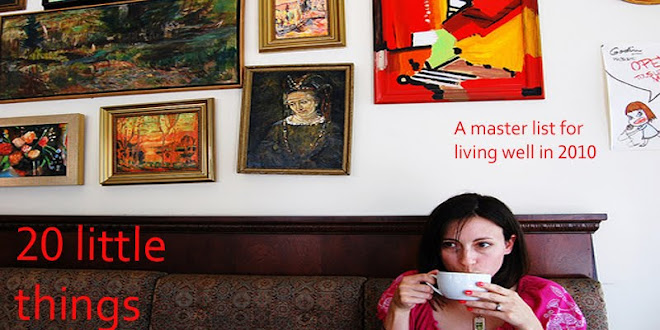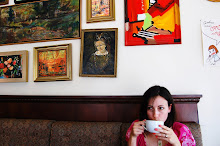Last week I finished my third book of the year, which means, technically, I'm behind. But in any case, I'm reading a little everyday, so that's good. Lately, it's been bits and pieces of books, so I haven't finished much. But I did complete The Guernsey Literary and Potato Peel Society. Approximately everyone I know recommended it to me, and I kept seeing it everywhere, and so finally I decided I might as well figure out what everyone was talking about.
It arrived via Paperbackswap, and I moved it to the front of the list because I wanted a novel to balance all the non-fiction bits and pieces I've been reading. I was also intrigued it's format -- it's written completely in letters. That seemed less intimidating than a classic novel. It's easy to see a big fat novel and feel overwhelmed with the thought of finishing it. I'm a mom, I work full-time, I volunteer, I try to workout, I try to take care of the house and have everyone fed... Yadda yadda, you've heard it all before. I want to add reading consistently into that line-up, too, and something about a book written in bite-sized chunks of letters worked for me, mentally.
And it was a delightful read. As delightful as a book set immediately after the Holocaust can be. The main character is Juliet, a writer for a newspaper whose book of columns is met with some unexpected success and fame. She's anxious to follow it up and find her next project, when one falls into her lap. An unexpected letter makes it her way from Guernsey, an island in the Channel Islands, which was under German occupation during the war. As Juliet begins to correspond with this person, she begins to peel back the layers of a remarkable story of how one group of friends and family survived during the occupation, partially by staying sane through reading and meeting to talk about books. Life on the island was hell --- the mothers sent all their children away, because it was thought to be the safer thing. The Germans controlled everything from where the people could be, to what they could eat, to what they could grow. One wrong step, and they'd ship you to a concentration camp. It was that atmosphere that made reading more important than ever, allowing people to escape, to stretch their minds, and to experience beauty. The Germans couldn't take that away.
There's a love story, too, as Juliet is single and upwardly mobile and attracts some attention from society-type men. At first, she seems happy to explore a relationship that's perfect on paper with a businessman who is used to getting what he wants. But slowly, especially after she travels there, the Guernsey Island chips into her soul. The down-to-earth people, the salty air, the shared appreciation for reading, and especially, a young girl orphaned by the war -- they all fight for space in Julia's heart. All of this is conveyed through letters between Julia and her editor, her best friend, and the islanders. It might seem gimmicky, but I didn't mind that gimmick at all. It made me yearn for the days when writing letters was the norm, and when communications were intimate, private, and sacred.
I had no complaints. There was some predictability in the story, but that's OK... It wasn't so much predictable as it was easy to sense what was right for Julia and to wait for her to make the realization herself. You saw what should happen and rooted for it. I like that in a book.
Only 22 to go!
Sarah Jessica Parker - Vogue Editorial
8 years ago



No comments:
Post a Comment